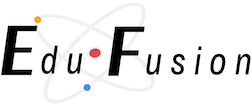As an online educator of adults, I’m always seeking opportunities to enhance the learning experience for my students. In the spirit of that quest, my mind is drawn to I my learning experience relative to engagement in working on my Master of Arts in Education/Adult Education and Training degree. Of the many instructors I had, one provided an experience superior to that of others; she truly engaged me. Reflecting on the experience, I identified a noteworthy aspect of her approach that played a tremendous role. It wasn’t only that she incorporated video communication that was important, all well as what she communicated, but also her “voice” in that communication.
“Voice” can clearly entail a number of elements and characteristics but, within this context, I think of it as an instructor’s persona, his or her personality and the delivery of that personality. Personality is at the heart of humanness and therefore has an important contribution to make toward the goal of student engagement in an online classroom. Learning is a social activity by nature so it comes as no surprise that something that would make an interaction or experience more personable would serve an important purpose.
There is also the argument for professionalism in production when it comes to classroom video. Professionalism in the production of classroom video is understandably important because it can affect how the message is received by students. This extends to an instructor’s delivery and it was on this area I focused greatly.
I took quite the formal approach to my delivery from scripting to shooting all the way down to how I edited my videos. Above all, I wanted them to be professional. My view of professionalism in classroom video included ideas like controlled, if any, emotion, sticking to a painstakingly designed script, and an editing process that emphasized an error-free final product. I would reshoot my welcome video over and over again and spend time and care editing out mistakes. Professionalism ruled the day. Then, a problem arose. I found the pursuit of perfection to be at odds with creating my voice, the voice that would be important to engaging students.
While professionalism is a worthy goal, that mindset can also limit the effect of a video from an engagement standpoint. I go back to my positive experience with an instructor who regularly used video communication throughout the course. I viewed each and every one of her videos in its entirety, sometimes more than once. A particularly appealing aspect was her unrehearsed, natural delivery of authentic and genuine thoughts in a very conversational manner. A result of that approach was that she was quite real to me in the moment. The importance of that factor resonated with me.
Within the definition of social presence lies the concept of “realness” and a person’s perception of it in interactions with others (Short, Williams, & Christie, 1976). Could there be degrees of “realness”, and if so, what can online instructors do to reach higher degrees in their videos?
Leahy (2015) points to the “talking head” element (video of an educator directly addressing students through the camera) as one of the most effective elements to increase student engagement. We would be remiss if we overlooked the value of this element to student engagement. A key point to take away is that a big part of what makes a person real in video is human imperfections, those imperfections that are visible in face-to-face, real-time discussion between people.
Yes, spending additional video shooting time and editing time to remove some of those imperfections might actually be detracting from the human element that we so greatly want to achieve in an online classroom. This was my experience. My aforementioned instructor’s approach led me to identify this and adjust my approach to creating video for my online classrooms. As a result, I not only create more videos to use in my classrooms but also enjoy the process all the more. My videos are more engaging and therefore more effective. I’m being myself, the person that chose a career in higher education because he sincerely wanted to help others in any way he could. All I needed to do was let go of my pursuit of perfection.
How about you? Is your pursuit of perfection getting in the way of you being a more effective educator? Have you thought of ways in which you can balance this aspect of the classroom experience you seek to provide to your students? I’d love to hear your thoughts in the comments section!
References
Leahy, S. M. (2015). Faculty uses and perceptions of video in higher education online courses (Ph.D.). Available from ProQuest Dissertations & Theses Global. (1680592913). Retrieved from https://search-proquest-com.contentproxy.phoenix.edu/docview/1680592913?accountid=35812
Short, J., Williams, E., & Christie, B. (1976). The social psychology of telecommunications. London ; New York: Wiley.

